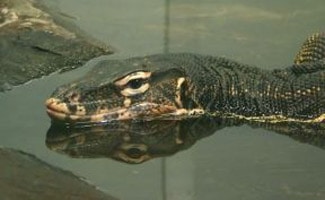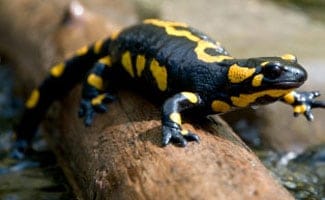The Water Monitor Lizard: Asian, Black Dragon, Flume, Sizes, As A Pet, & More
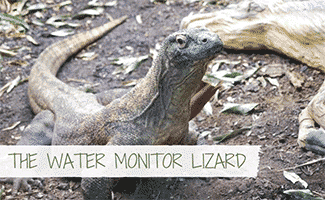
The water monitor is also known by its Latin root, Varanus Salvator. One of the largest lizards in the world, it can grow to nine feet and reach a weight of one hundred pounds! It is outsized by only two other lizards: the Komodo dragon and the crocodile monitor. The Komodo can gain more weight than the water monitor, while the crocodile can grow longer—up to twelve feet!
What Does A Water Monitor Look Like?
Water monitors are typically grey, with yellow spots and black stripes. They are covered in round scales, and their tail is half the length of their body. The water monitor’s preferred habitat consists of tropical areas, mangrove forests, areas of thick vegetation, and bodies of water. The water monitor is more common than other monitor lizards and is also easier to breed. However, due to its large size and excessive weight, it is one of the more difficult lizards to keep as a pet. Domesticated cats require large cages, ample living room, and precisely adjusted humidity levels.
What Does A Water Monitor Eat?
Due to its size, a water monitor must be fed regularly (daily). It eats various smaller animals, including rodents such as rats and mice. Water monitors are primarily found in Thailand and the Eastern part of the world. In captivity, they are known to be aggressive and flighty. They use their tail, claws, and mouths when fighting. They spend most of their time in the water and are excellent swimmers, hence their name. They are not the most challenging lizard species to breed and lay about 15-20 eggs per batch.
Where In The World Are Water Monitors Located?
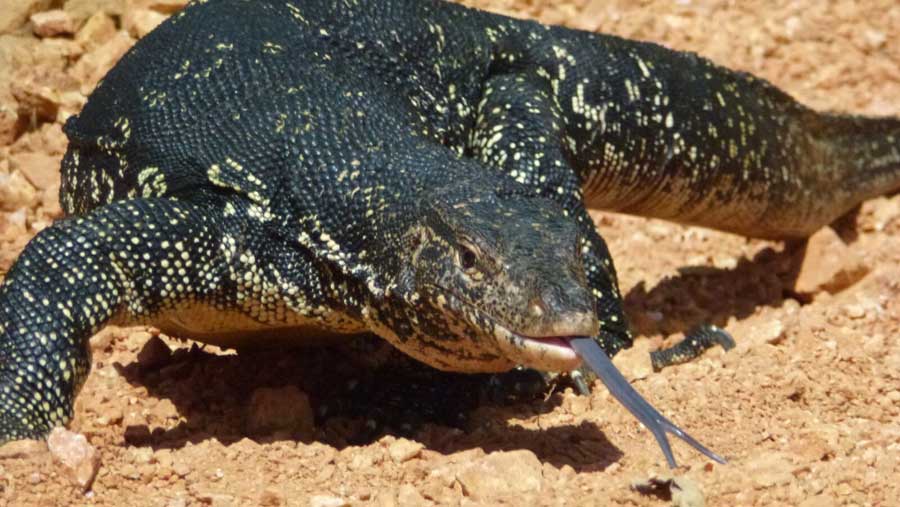
Water monitors are found in Asia, Sri Lanka, India, Indochina, the Malay Peninsula, and various Malaysian islands. Like all monitor lizards, they are cold-blooded. They eat insects, crabs, mollusks, snakes, eggs, fish, birds, rodents, and other lizards. They enjoy chasing their prey rather than stalking and ambushing, and their forked tongues are used to smell their prey.
How Fast Are Water Monitors? Can They Swim?
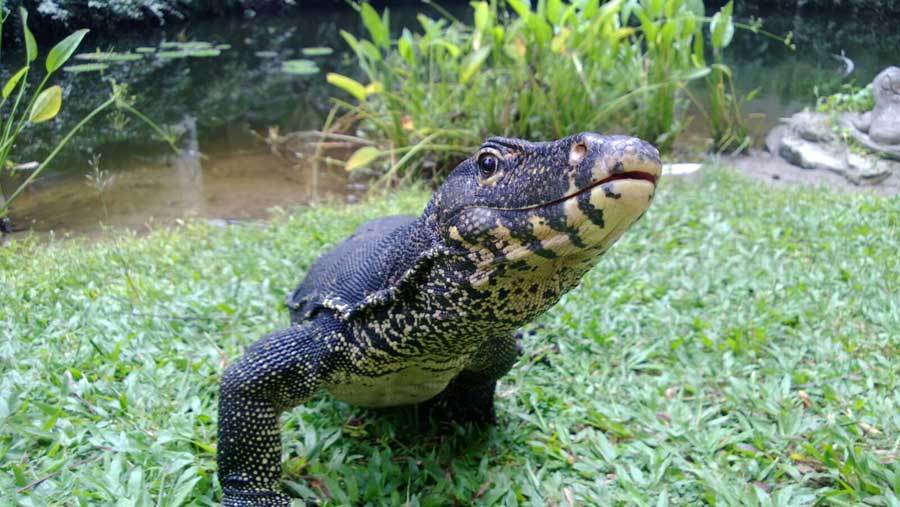
Water monitors have strong legs and can run fast—faster than the average human. They can also climb very well and will stay in trees to escape predators. Typical hiding places for water monitors include trees, burrows, and river banks. Living up to its name, one of the most impressive characteristics of the water monitor is that it can swim and remain underwater for up to half an hour.
How Do Water Monitors Breed And How Long Do They Live?
Water monitors breed rapidly and well. Female monitors lay about 40 eggs a year in two clutches, which are laid about 4 to 6 weeks after breeding. There are about 15 eggs per clutch, and eggs are commonly laid in termite mounds. Males are generally larger, longer, and heavier than females. Water monitors reach maturity in two years and have a lifespan of about 15 years.
All About Monitor Lizards
Dogs may be known as “man’s best friend,” but some people prefer a different kind of companion–one of a scalier variety. An interesting choice for a pet growing in popularity in the United States is the monitor lizard. The trend seems to have started in southwest Florida’s Cape Coral area, and from there, the monitor lizard population exploded and spread across the rest of the state. The lizards have even found homes in such densely populated areas as Orlando. Learn more about them in our monitor lizards article.
Monitors vs Geckos vs Chameleons vs Salamanders & More!
Curious how water monitors relate to other types of reptiles? Check out our reptile section to learn all about the different types of lizards that roam our modern-day planet.
Interested in having a water monitor as a pet? Tell me all about it in the comments!
